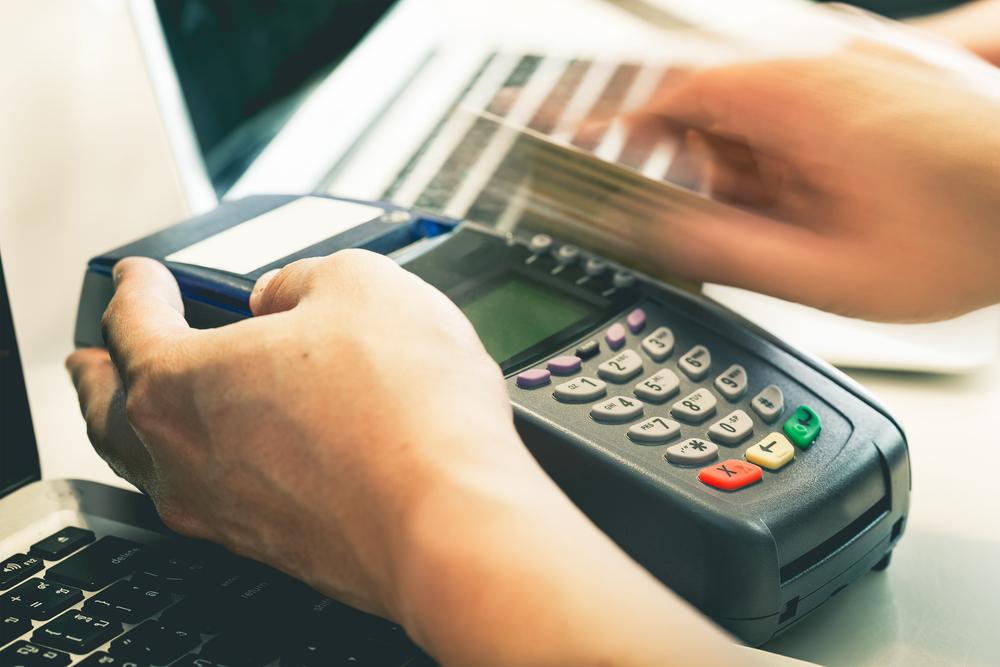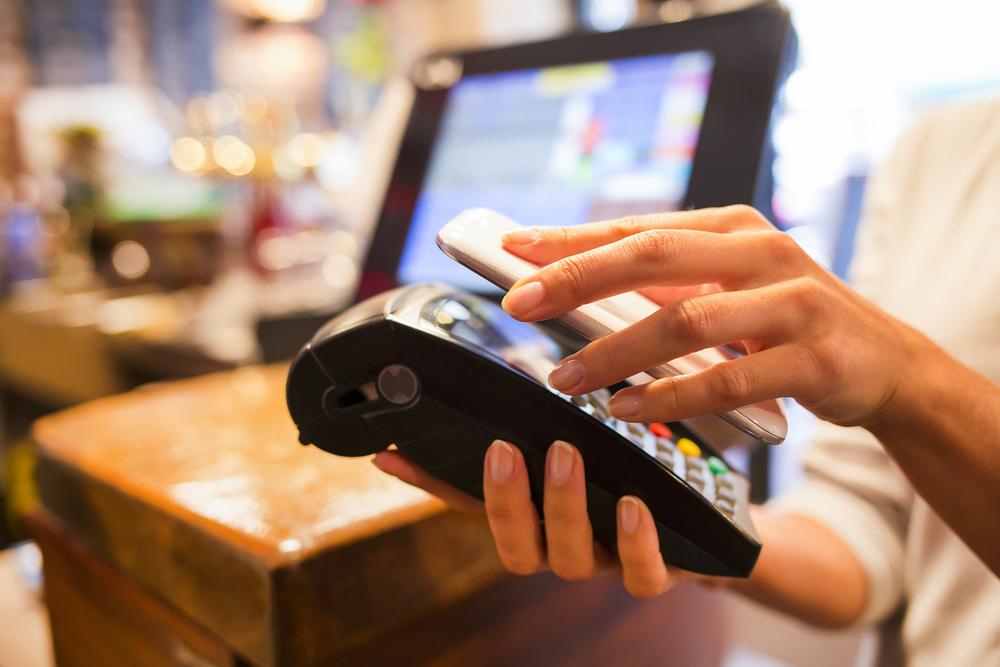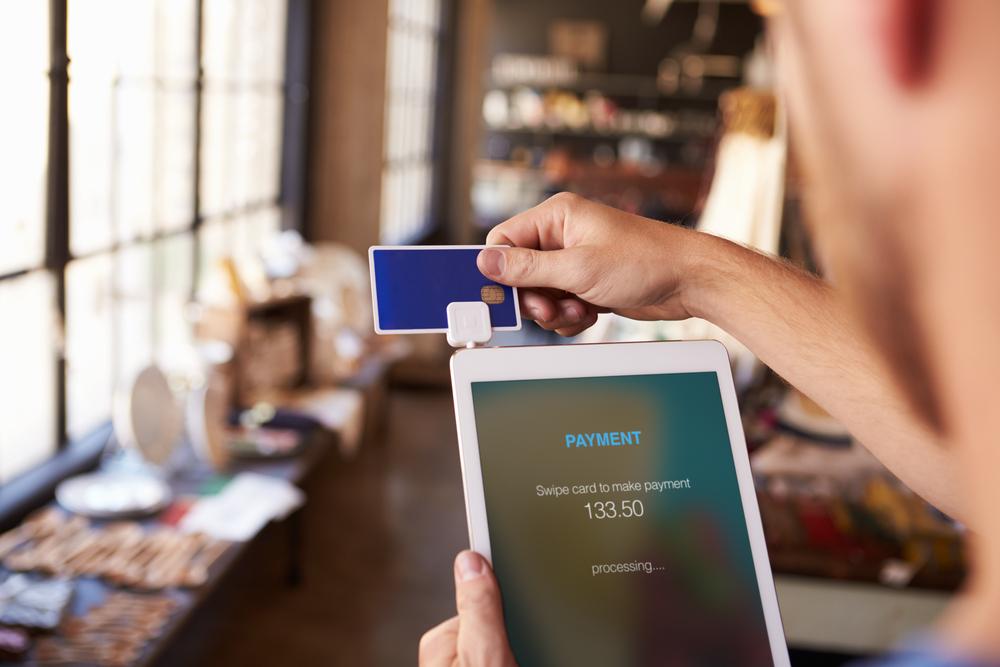Business News Daily provides resources, advice and product reviews to drive business growth. Our mission is to equip business owners with the knowledge and confidence to make informed decisions. As part of that, we recommend products and services for their success.
We collaborate with business-to-business vendors, connecting them with potential buyers. In some cases, we earn commissions when sales are made through our referrals. These financial relationships support our content but do not dictate our recommendations. Our editorial team independently evaluates products based on thousands of hours of research. We are committed to providing trustworthy advice for businesses. Learn more about our full process and see who our partners are here.
10 Mobile Credit Card Processing Myths Busted
Mobile credit card processing doesn't deserve the negative rap it sometimes gets. We debunk 10 common mobile credit card processing myths.

Table of Contents
There are many myths surrounding mobile credit card processing. For example, many people think mobile credit card processing is much cheaper than the best point-of-sale (POS) systems, that accepting credit cards using mobile devices is stressful and difficult to set up, and that customers would never dare compromise security by saving or swiping their credit cards on a mobile device.
Those are just some of the many unfounded rumors surrounding mobile credit card processing, which allows businesses to process credit card payments using smartphones and tablets. We’ll explain what mobile credit card processing is and debunk some common myths about mobile credit card processing.
What is mobile credit card processing?
Mobile credit card processing allows merchants to process payments by using a small credit card machine attached to a mobile device or by scanning previously stored credit card information from a mobile app (as is the case with mobile wallets). Any time you’ve gone to a restaurant and the server has brought a payment device to your table, you’ve encountered mobile credit card processing. Or if you’ve visited a flea market and used the seller’s phone to swipe your credit card, that’s mobile processing, too.
Consumers are steadily shifting their shopping preferences as an increasing number of businesses implement mobile payment technologies that are made easier and more accessible by major players such as Square and PayPal. To stay competitive, it’s more important than ever for small businesses to be up-to-date on current purchasing trends and to understand where mobile payment technology is headed. See our review of Square for more information, and also check out what you need to know about PayPal’s mobile credit card reader.
Mobile credit card processing myths busted
If you’re considering adopting mobile payments or you’re curious about the technology, learn why these 10 mobile credit card processing myths are completely untrue.
1. If you already have a POS system, the hassle isn’t worth it.
A point-of-sale (POS) system is often stationary, whereas a mobile credit card processor gives you on-the-go capabilities. That’s especially helpful in restaurants, where it enables customers to hand their card to a server and get it back immediately, with the payment processed tableside – which means no more waiting for staff to leave and return. Even if you have POS software, mobile credit card processing is worth any perceived hassle (which is actually minimal) for the convenience it offers. [If you don’t already have a POS system or you’re looking for more information, check out our guide to POS systems for small businesses.]
2. The setup is difficult and complicated.
Mobile credit card processing platforms are easy to install. Just download your processor’s app, and follow the instructions when you first use it. After a few minutes of implementation, everything should be in place. And if you do have trouble, most credit card processing companies have customer service representatives readily available to help you. The credit card processor Merchant One is especially well known for great customer service. Read our full Merchant One review to learn more.
3. All rates are the same.
Most credit card processors charge significantly different rates. As we researched the top credit card processing vendors, we found rates as low as 1.7% plus 7 cents per transaction. We also found processing companies that charge 3.5% plus 35 cents per transaction. As your credit card processing volume increases, this seemingly small difference can translate to thousands of dollars. That’s why it’s important for small businesses to investigate credit card processing rates across the marketplace before choosing the best processor.
4. Customer credit card information is stored on the mobile device after a transaction.
All reputable credit card processing companies encrypt customer data as it goes between the application and the processor. This means your customers’ credit card information is never at risk. Any mobile credit card processors that say personal data will be stored on your device should be nonstarters; search for other vendors instead. [There are other red flags you should watch out for as well – avoid these credit card processing scams when choosing a provider.]
5. It raises the risk of fraud.
It’s entirely reasonable to worry about fraud, but mobile credit card processing doesn’t increase your risk. Again, because of encryption, no customer data remains on your device when you partner with a reputable vendor. That means nobody on your team can access and sell customer data. There’s also no chance that anyone you sell your device to in the future will be able to access this data. [Here are some credit card risks small businesses should be aware of.]
6. Wireless devices are unreliable.
It’s true that Wi-Fi networks only have so much bandwidth, but it’s not true that bandwidth limits make mobile credit card processing unreliable. If anything, you can easily create a separate Wi-Fi network for your mobile credit card processing to keep everything moving smoothly. Doing so costs little or no money and ensures your regular network doesn’t get bogged down with transactions.
7. Mobile processing apps are error-free.
Technology, though not prone to human error, isn’t perfect. “Data corruption glitches do happen on wireless mobile devices,” credit card expert Stephen Lesavich told us. “A merchant using mobile credit card processing apps needs to be more diligent to review their mobile processing transactions. [However,] mobile technology is fantastic when it works.”
8. Mobile credit card transfer times are long.
It’s strange that this myth has persisted, considering the time it takes to transfer mobile versus traditional payments has pretty much always been equivalent. Both types of transactions take just a few days to appear in your account. The only faster way to get money from customers is through cash.
9. You need to buy special devices.
Regular mobile devices should be entirely compatible with any major mobile credit card processing platform. That means you can use any iPhone, iPad, Android phone or Android tablet. They’re also more versatile for your business than vendor-specific devices.
10. The biggest business opportunity in the mobile payments space is in developed markets.
Part of the resistance to mobile credit card processing is that North American and European business owners are so used to traditional points of sale. In other markets, POS technology is new, which makes businesses there more likely to start with mobile credit card processing in the first place. These markets may be the biggest opportunity in the mobile payment space, though demand in North America and Europe still abounds.
Mobile vs. traditional POS credit card processing
The benefits of mobile credit card processing include convenience, a streamlined POS system and access to a breadth of business opportunities based on collected consumer information. Nevertheless, mobile payment as a whole remains a hotly debated topic among business owners, customers and industry experts.
To understand why a growing number of companies are embracing mobile processors, consider the following additional advantages mobile credit card processing has over traditional POS systems:
- Convenience. You can accept payments anytime, anywhere with mobile credit card processing; all you need is an internet connection. But for some small business owners who are used to stationary desktop setups, credit card processing that is not tethered to a physical location may seem to present security risks. In reality, however, many mobile credit card processors can securely process high volumes of transactions.
- Streamlined POS. Most credit card processing platforms can provide better customer insights than traditional POS credit card processing platforms can. For example, mobile credit card processing is generally better for tracking which goods and services you sell most often. This information can tell you which offerings to scale up or slim down and help you prepare for times of higher demand.
- Quicker purchases. With mobile credit card processing, the transaction is usually in the customer’s hands. Your cashiers can take fewer steps and let the customer tap all the prompts on the screen. This sense of control can make the purchase experience feel faster and more enjoyable for the customer. That might get them to return for more purchases time and again.
Mobile technology in business
Mobile credit card processing is just one type of technology that can allow business operations to flourish regardless of their locations. Companies should also consider mobile CRMs and mobile document management systems, to name just two examples of increasingly popular software. With a robust suite of mobile technology at their fingertips, business owners can take their enterprises to the next level, as long as they don’t let unfounded myths get in the way.
Sara Angeles contributed to the writing and reporting in this article. Source interviews were conducted for a previous version of this article.











